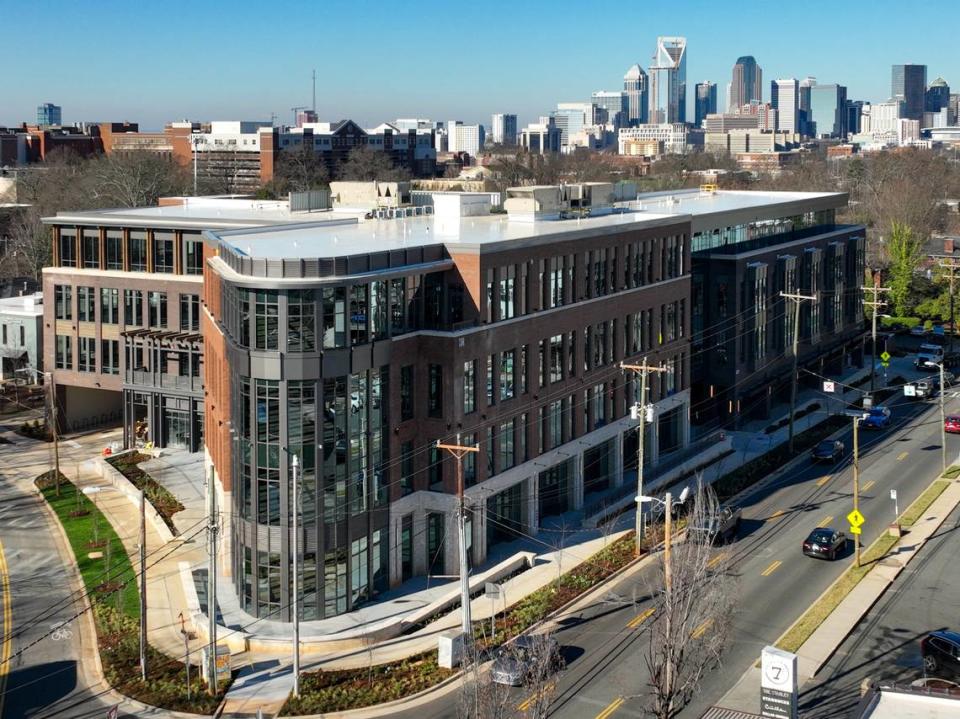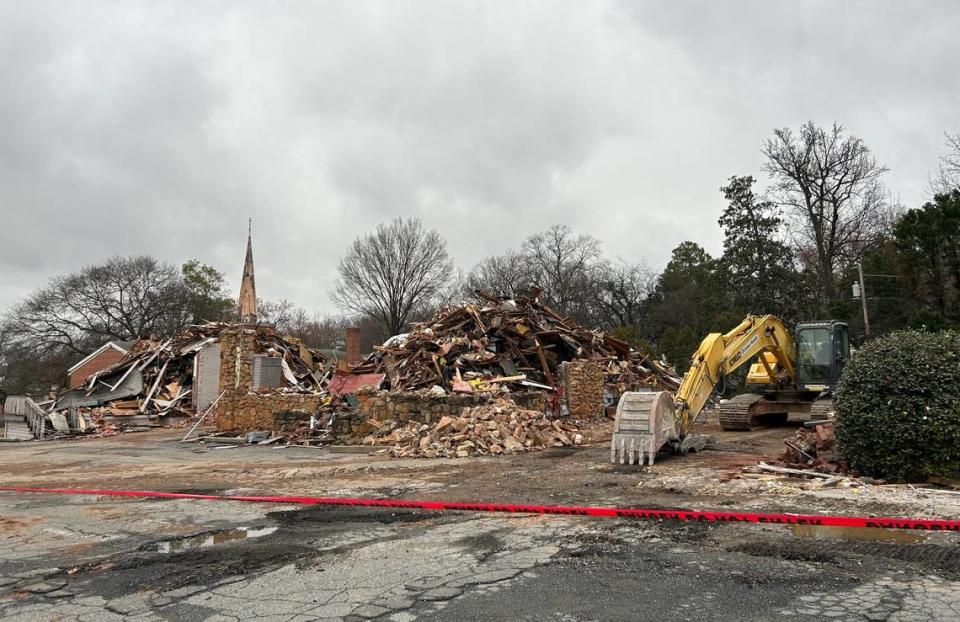Neighborhood discord in Elizabeth centers on whether to seek historic district status
One of Charlotte’s oldest neighborhoods has a lot of history. But it doesn’t have a local designation to back it up.
One Elizabeth neighborhood group wants that changed, hoping to better protect older homes and slow down development. But another group argues that it’s not in Elizabeth’s best interest to seek such a designation.
The polarizing topic has filled recent editions of the community newsletter. The group supporting historic designation started putting up signs around the neighborhood this week. And a community meeting is set for Thursday night at a Baptist church to discuss more details.
The debate speaks to broader issues facing a growing city like Charlotte, including how local leaders and residents can protect older neighborhoods while still building new office, retail and apartment buildings. It also speaks to what tools are available for neighborhoods seeking to preserve their older homes or stave off encroaching development.
Historic districts generally mean homeowners need to apply for an application with the city to changes on the exterior of their homes.
Founded in 1891, Elizabeth has been no stranger to development in the past few years. That includes a new mixed-use building with office and retail on East 7th Street. Elizabeth is home to about 5,600 people, and sits about 2 miles southeast of uptown.
“We think the local historic district will help us maintain the scale and mass of the neighborhood, slow down development and keep the tone of the neighborhood in tact for a long time,” Clifton Settlemyer, president of the Historic Elizabeth Neighborhood Foundation, told The Charlotte Observer.
The group is hosting the Thursday night meeting to talk more about its plans.
The Elizabeth Community Association, meanwhile, believes a historic designation could introduce new burdens on homeowners when it comes to time and money on home projects.
That group also contends the designation does not address some of the problems many hope it would, like preventing building demolition.

What are historic districts?
Settlemyer’s group hired a consultant to survey Elizabeth’s properties and figure out, among other things, what buildings contribute to its history.
After that, the proposal would need approval from the Charlotte Historic District Commission, the North Carolina State Historic Preservation Office and City Council. It also requires signatures from at least 51% of property owners in the district boundary.
If approved, Elizabeth would become Charlotte’s ninth historic district. Other districts include Dilworth, Fourth Ward, Wilmore and Wesley Heights.
Last August, City Council approved McCrorey Heights, a historically Black neighborhood on the west side, as the latest historic district.
The designation means all buildings would be protected by a local design review process.
Minor and major changes to people’s properties and homes like fences, windows, tree removal, painting brick and front porches would need approval from the historic commission.
The historic designation would not restrict any use of a home, according to city planning officials. It also does not require review of interior changes such as to the kitchen or bathrooms, nor require things like specific paint colors.
Homes built in historic districts don’t have to be an exact replica of the original buildings, according to an update commission program manager Kristi Harpst gave to Elizabeth community members two years ago.
The newer home generally has to match the appearance of the historic properties rather than the architectural style.
“We look at where’s the front door, what are the window openings like, what’s the roof line look like,” Harpst said at the 2021 meeting. “We look at elements of the building and those elements can absolutely be modern.”
When it comes to tear downs, the commission cannot deny a demolition application. But it can delay one for up to a year to try to find other solutions.

Historic buildings on the decline
The tear downs of older homes is one reason why the Historic Elizabeth Neighborhood Foundation is interested in a historic district status.
Elizabeth has seen a decline in the number of buildings that contribute to the neighborhood’s history, according to a survey by SVM Historical Consulting.
The decline is due to both homes that have been torn down or altered. From 1988 to 2022, there were 239 fewer structures listed as contributing.
Elizabeth had close to 900 buildings listed as contributing to its history on the National Register of Historic Places, according to a 1988 form. But the register doesn’t provide much protection, Settlemyer said.
“(Historical buildings) function well in their original context,” Settlemyer said. “Once a building loses its historic context and is not economically viable, it’s going to be gone.”
Is historic designation too bureaucratic?
But members of another Elizabeth community group don’t think the historic status is in the best interest of the neighborhood.
The Elizabeth Community Association started studying the designation process in 2021 at the request of neighbors who supported the idea. The association researched the designation and met with city officials. In the fall of 2021, the association’s board voted against further support of the topic.
The designation doesn’t control the density of any proposed development nor can it stop developers from purchasing swaths of land, West Bryant, president of the Elizabeth Community Association, wrote in the spring 2023 community newsletter.
There are other preservation tools like getting an historic easement that protect properties in perpetuity, Bryant wrote.
He pointed out a number of what he called red flags with the designation, including the bureaucratic controls the Historic District Commission has on certain changes to a property like tree removal.
“The HDC can force you to change minor details of your project based on their view of what fits, all the way down to things like the width of your fence slats,” Bryant wrote in the newsletter.
Some homeowners might need to hire professionals to help get through the HDC process, he wrote. This could end up putting time and financial burdens on people.
The designation is like a blunt force object to use for a complex challenge, Evan Kettler, the community association vice president, told The Charlotte Observer. He generally did not like how historic districts can dictate what property owners can and can’t do with their homes.
“I don’t like the idea of forcing other people to do it your way,” Kettler said.
Historic property assurances
Settlemyer believes the neighborhood should have some control over the size and scale of new developments. Basically, making sure new buildings fit in with the overall look of Elizabeth.
He counts many of the people on the Elizabeth Community Association as friends. Friends who happen to disagree on this topic. The debate, he and others said, has not turned ugly.
Sarah Crowder, who sits on the ECA board, has lived in Elizabeth since 1982. She worries about the financial expense that might come with upgrading a home per historical regulations. She’s also concerned about dictating to others about architectural taste.
“I don’t know why my opinion about how I want my house to look, which is as close to the original as possible, should dictate what someone else can do with their home,” Crowder said.
The community meeting hosted by the Historic Elizabeth Neighborhood Foundation is planned for 6:30 p.m. at St. John’s Baptist Church. But the debate itself appears far from settled.

